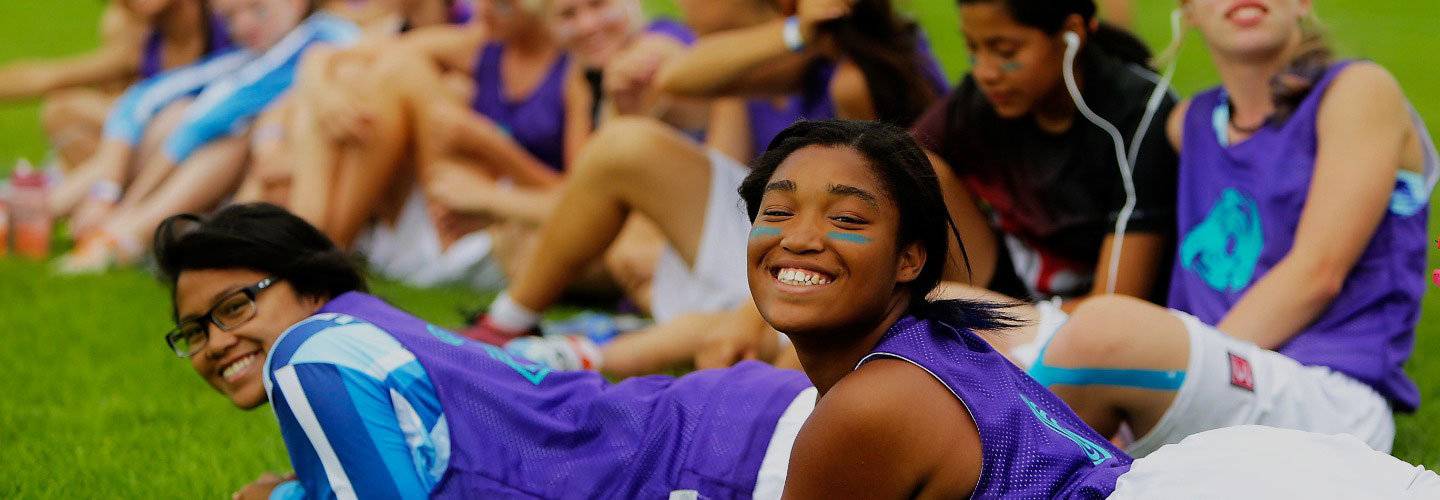

Introduction
While Spirit of the Game (SOTG) is one of the great aspects of ultimate, it can also be an inroad for bias. Here are some questions to consider as you discuss SOTG with your team:
How might our implicit biases impact the way we interpret the actions of a player, coach, observer or fan?
Whether we’re aware of it, we all have bias. Our brains are wired to make quick connections to interpret the world around us. However, often without even knowing it, we make assumptions and judgements based on stereotypes that have unconsciously formed pieces of our perspective and world view.
To minimize the impact bias may have on individual and team thinking and behaviors, engage your team in discussions of explicit and implicit bias, microaggressions and stereotypes. Notice when bias or stereotypes may have played a role in behaviors, decisions or responses. Players of color report being called for fouls more often than their white counterparts for the same behaviors. Ask yourself if you would make the same foul call on someone of another race or gender.
Also, remind team members to consider the likelihood of bias impacting our thinking during high-stress, fast-thinking situations. Positive affirmations about teammates and opponents before and during a game can help counteract this.
How can we examine our expectations of “mutual respect among competitors” to ensure that we are being inclusive of different cultural manners of celebration?
R.E.S.P.E.C.T. – find out what it means to me. To show mutual respect, we must first understand what respect means and how it is demonstrated to our teammates and competitors. Realize that respect may look different in different cultures, and what one culture may interpret as disrespectful (e.g. interrupting, avoiding eye contact) may be very practical and, in fact, respectful in other cultures.
It is also important to understand what “good spirit” means to different people, and to be aware of the impact our biases and expectations have on our ability to judge “good spirit.” To be inclusive of different backgrounds and cultures, especially ones traditionally underrepresented in ultimate, we should seek to understand how interpretations of “good spirit” may differ from player to player or team to team. For example, don’t assume a particular celebration by an opponent is meant to taunt and is not simply an expression of joy.
How can we use Spirit Captains, Timeouts and Circles to help share differences, enhance understanding and reduce the risk of bias negatively impacting players and the game?
The different practices and procedures in place to help uphold Spirit of the Game, like the ones outlined in our Spirit Captain’s Packet, can be utilized in a variety of ways to create a more inclusive environment. Prior to a game, Captains and Spirit Captains should meet with the opposing team’s leaders to share highlights of their team culture in order to facilitate better awareness and understanding prior to play. Additionally, all members of each team could meet in a spirit circle before a game to share key elements of their team culture, learn about the culture of the other team and start with positive relationship-building.
During the game, Spirit Captains can use spirit timeouts when they feel bias might be impacting game play or causing conflict between the teams. Teams can then take the time to resolve the issue in a spirit circle as outlined in the 2020-2021 Official Rules of Ultimate, Section 7.E.2.
While spirit circles have traditionally been used by us to praise each other for spirited play, they also can be just as, if not more, effective when the conversation also offers constructive criticism and discusses areas for improvement. Use the Spirit Score Sheet to aid you in giving an honest evaluation of exceptional or disappointing displays of spirit.
How can we make sure our biases don’t play a role in our decisions on spirit scores?
The new Spirit Score Sheet is redesigned to make spirit scoring more objective, focusing more on the actions of a player or team rather than their perceived attitude. Read through it carefully and give specific examples (when applicable) as reasoning for any particularly low scores.
Make sure to be reflective and thoughtful in your responses; don’t simply choose a number based on “instinct” or expediency. Additionally, consider your own biases and expectations when scoring, as they should not factor into the score you give.
To the extent possible, give your team time to do the scoring before gathering with your opponent in a spirit circle. Then, use the conversation in the spirit circle as an opportunity to review and potentially revise any initial scores.